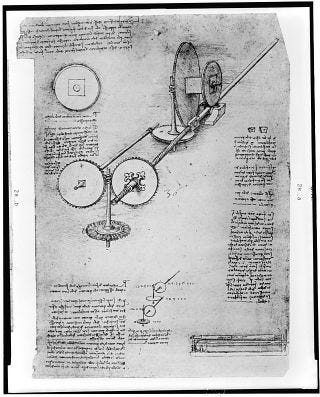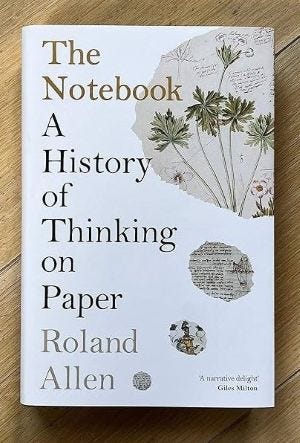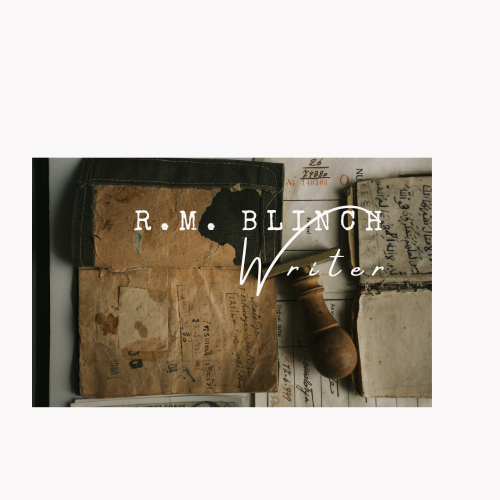In our screen-saturated world, you might think the simple act of writing on paper is obsolete.
But you’d be wrong.
Thanks for reading Write On! Subscribe for free to receive new posts and support my work.Subscribed
The centuries-old notebook is having a moment, despite us being inundated with endless phones and gadgets, along with AI this and AI that.
“I take notes like some people take drugs,” said Tim Ferris, the American author of numerous bestsellers. He claims to have an eight-foot shelf groaning with notebooks because he trusts “the weakest pen more than the strongest memory.”
The global paper notebook market topped US$4 billion in 2024, and is expected to grow nearly four percent a year for the next decade, according to data gathered by Market Reports World.
There’s a myriad of reasons for the notebook’s staying power but one intriguing idea screams for attention. Do these ancient devices make us more productive, more aware, even happier?
Before we go any further, let’s consider the major downsides to notebooks.
* Notebooks are non-compliant with the USB-C standard, meaning they won’t recharge, no matter where you are in the world. Frustrating!
* Your notebook data can’t be scraped, resulting in a loss of personalized ads offering unbeatable deals/opportunities.
* The device is useless in suggesting how to rewrite your last woefully inadequate sentence.
* Your posts won’t generate ‘likes,’ meaning you must cope without all your endlessly helpful peer validation.
Yeah, I’m messing with you. The bullet points serve as an indictment of our cursed digital world that burdens us all. In contrast, the notebook offers a measure of solace, a way to escape all the nattering nabobs online.
Let’s not forget that the paper tablet is affordable. Putting aside the pricey Moleskine brand, an everyday notebook can cost less than a pint; and how much does a ballpoint cost at the dollar store these days?
Da Vinci’s Notebook Belt
The notebook, in a form we’d recognise today, dates back to the 13th century, according to Roland Allen, author of the brilliantly exhaustive, The Notebook: A History of Thinking on Paper.
Notebooks came into their own during the Renaissance. They pioneered ledger use, debuted the double entry accounting system, and allowed artists to capture their surroundings in ways hitherto thought unimaginable. Those early scratchings provided a foundation for innumerable scientific discoveries, wealth creation, and artistic advancements that continue to resonate today.
Probably the most famous of paper scribblers was Leonardo Da Vinci. He carried a notebook on his belt, for pete’s sake. Why? Because he wanted to “constantly observe” his surroundings, according to a seminal biography by Walter Issaacson. “His notebooks have been rightly called ‘the most astonishing testament to the powers of human observation and imagination ever set down on paper.’”

The late great writer Joan Didion was a pad and pen fan, saying they helped her stay in touch with her past, however dodgy. “I think we are well advised to keep on nodding terms with the people we used to be, whether we find them attractive company or not,” she wrote in Slouching Toward Bethlehem.
I caught the notebook virus a few years ago after stumbling upon The Artist’s Way, which promotes the idea that people can unlock their long submerged creativity by writing three pages in longhand every day. (I hope to explore my fruitful journey with her work in a future post. I would love to hear from readers who have also worked with her program.)
“Morning Pages are a loving witness to our growth process,” Julia Cameron writes in the book. “They are a safety net for our dreams.

”
Roland Allen said in his book that notebook fans have come to realize “that by taking the time and effort to externalise their thoughts, to draw a line, to work out a sum or manipulate an equation, they were expanding their minds.”
So why not take a whirl, grab a notebook, screw up your courage, and begin jotting. You might be surprised by what you are unlocking, and what has lain in wait for you to discover.
